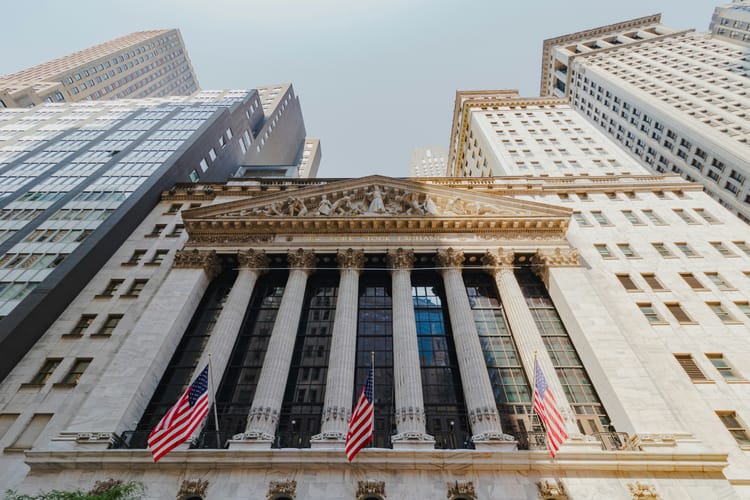Deutsche Bank sets strict emissions targets across corporate loans

New Deutsche Bank emissions targets for coal, cement and shipping clients mean that 55% of its corporate loan portfolio is now on a net zero pathway.
With tougher emissions vetting on loans of over €25 million, a quarter of deals are now getting “kicked back to be renegotiated” on the basis of clients’ weak net zero plans, Deutsche Bank’s Chief Sustainability Officer Jörg Eigendorf says.
He told Reuters this morning that the new targets to reduce coal, cement and shipping emissions only apply to corporate loans, not to the underwriting of stocks and bonds (for which the bank is waiting for industry agreed methodologies).
Specifically, the Deutsche Bank emissions targets announced today include reducing financed emissions from coal mining by 49% by 2030 and 97% by 2050. For cement, the bank is targeting 29% reduction in Scope 1 and 2 emission intensity by 2030 and 98% by 2050.
This is phase 2 of Deutsche Bank’s net zero pathway for financed emissions, after it published similar targets for oil and gas, automotive, power generation and steel in 2022. It now expects to publish a net zero target for aviation finance in January 2024.
Deutsche Bank emissions targets: loan vetting and phasing out of reluctant clients
The German bank had a corporate loan book of €107 billion euros at the end of 2022, which generated 30.5 million tonnes of CO2 equivalent last year. It is tackling Scope 3 emissions through cooperation with clients and suppliers, with 80% of its vendors by spend expected to publish CDP-aligned carbon footprint information by 2025.
Parallel to a more selective approach to lending, the bank says it is phasing out business with “not-to-abate industries” and clients that are not willing to align to its transition pathway.
According to the Banking on Climate Chaos report, which tracks fossil fuel financing by the world’s 60 biggest banks, Deutsche Bank has provided US$96.49 billion of financing to oil, gas and coal companies since 2016. The report ranks it as the world’s 22nd biggest fossil fuel financier.
Deutsche Bank also has a goal to provide €500 billion of sustainable finance by the end of 2025 (though the KPIs used in some of the finance facilities categorised as sustainable by global banks may surprise you).
The bank is a founding member of the Net Zero Banking Alliance (NZBA). As of 2023, it has reduced Scope 1 and 2 emissions by 64%, from a 2019 baseline, mainly by reducing its real estate footprint, cutting energy usage and sourcing more energy from renewables (96% of its total power usage). Today, the bank also announced an increased ambition to reduce total energy consumption from 20% to 30% by 2025.







Member discussion